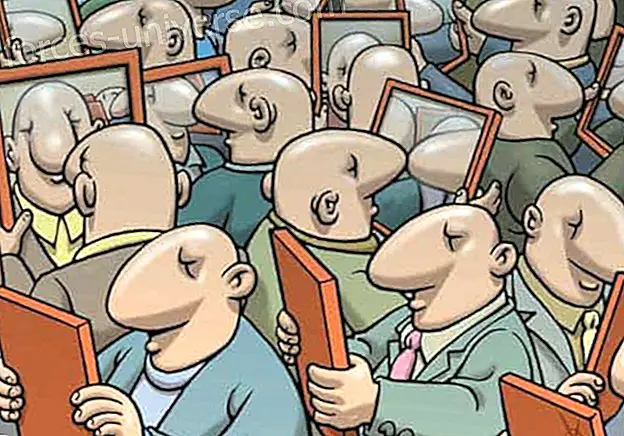In these few letters we will know the brief history of the acquaintance, Sirvo de Dios, Dr Jos Gregorio Hern ndez. Christianity has a long history of being involved in health care, especially of the poor. Since the days of the early church, Christians have been taking care of the sick, even when doctors and others have refused to do so.
Wherever Christianity has spread, hospitals have followed. Part of the reason for this is probably the fact that Jesus himself was a healer. Even beyond that, the ethics that Jesus taught, whatever they do to the smallest of these, they do it to me It was a powerful motivation to serve the sick and the poor.
In addition, as a background to all this, and unlike the world of Hellenistic influence, Christianity has always affirmed the goodness and importance of the body, and therefore the need to take care of it.
Although for most Christians serving the poor and healing the sick are still largely unknown, José Gregorio is an exception. He is an important figure in the history of his native Venezuela and is remembered today, both for his medical skills, and for his generosity and service to the poor.
José Gregorio Hernández was born in the town of Isnotú, Trujilo State, Venezuela, in the foothills of the Andes mountains. His parents owned a store, and his father was also a doctor. People approached him for treatment, and he diagnosed his illnesses, in addition to preparing medications for them. He was very skilled with herbal remedies. So his skills were very well valued in the area of Isnotú.
Perhaps due to his father, José Gregorio Hernández decided to pursue a medical career. He received his medical degree in 1888 at the Central University of Venezuela in Caracas, the most prestigious school in the country. Once he graduated as a doctor, the Venezuelan government granted him a scholarship to carry out advanced medical studies in Europe .
He traveled to the Pasteur Institute in Paris, where he studied bacteriology, microbiology, histology and physiology. He then returned to Venezuela and became one of the main doctors of the José María Vargas Hospital.
Despite this early professional success, Dr. Hernández was not entirely sure about his vocation to be a doctor. A devout Catholic, Hernandez believed that if he was going to dedicate his life to serving God, his only option was to join the clergy. (Within the Catholic Church, the concept of "vocation" or a call by God in your life, was restricted to the clergy: if you had a vocation, it meant that you were "called" to be a priest, monk, or nun.)
Accordingly, Hernandez tried twice to become a monk in very strict monasteries. In 1908, he spent 10 months in the Monastery of Lucca, in Italy before his fragile health forced him to return to their homes. Then, in 1913, he returned to Italy to continue his preparation for the closure of the Pio Latin America School in Rome . Once again, however, poor health forced him to return to Venezuela.
José Gregorio Hernández The Doctor of the Poor
Around these trips to Italy, Hernández practiced medicine in Caracas. He became known as the "doctor of the poor." He responded to the request for help, no matter if the patient was rich or poor. He treated the poor for free and sometimes even bought medicine for them with his own money.
Along with the practice of medicine, Hernández taught advanced medicine through his hospital in Caracas. This led him to publish The Elements of Bacteriology in 1906 . He also continued his medical research. His most important finding was that of malaria, a disease caused by a mosquito-borne parasite, could lead later in the life of angina pectoris (also called simply "angina pectoris"). He published his research in a book entitled angina pectoris of a malaria nature (1909).
His publications were not limited to medical issues. In accordance with his theological and philosophical interests, he published Elements of Philosophy (1912).
In 1919, after attending Mass, José Gregorio Hernández stopped at a pharmacy to buy medicine for one of his patients in La Pastora, the colonial district of Caracas. Cars had only been recently introduced to Caracas and there were very few of them in the streets. Perhaps for this reason, Hernandez did not notice while walking around a tram and went outside. He was hit by a car, pulled, and hit his head on the stone curb in the street. He died on the spot.
The news of his death spread throughout the city. So many people wanted to show their aspects, that the newspapers of the time say that almost all the flowers in the city were chosen for bouquets and funeral wreaths.
At the funeral, tens of thousands of people filled the square around the cathedral, and when his body was to be placed in the hearse, a spontaneous scream rose from the crowd, “Dr. Hernández is ours. ” The people took the coffin and carried it on their shoulders to the cemetery.
The people of Venezuela have continued to venerate the memory of José Gregorio Hernánde z. Candles are left in his grave regularly; in 1975 they caused a fire that blew up the grave.
In 1949, the church in Venezuela asked the Catholic hierarchy to consider Hernandez for holiness. Pope John Paul II gave him the title of "Venerable" in 1986, a step on the road to beatification or canonization.
José Gregorio Hernández was a wonderful example of a Christian who lived his faith with sacrifice, with his considerable gifts to help the poor and to advance medical knowledge and education. His dedication and desire to serve God made him dedicate his work as a doctor to the service of the poor.
However, this deep desire of God almost led him disastrously wrong. Like many sincere believers who want to serve God, he believed that the best way to do this was to join the clergy, perhaps due to the Catholic conception that the only vocations went to the church.
Poor health did not prevent him from joining a monastery, many poor people would not have received the medical attention they needed, and much would not have been cured except by Dr. Hernandez. Fortunately, God predominated his mistake and sent him where his true vocation lay.
While we celebrate the good work that Dr. José Gregorio Hernández did as a doctor and for the poor of Venezuela, it is also necessary to take into account the lesson that God gives to each of us when making a unique call and giving the gift of Fulfilling the purpose for our life, and that, sometimes, serving God does not mean becoming part of the clergy, but simply working in the "secular" field, where our gifts can do the greatest good for our neighbors.
AUTHOR: JoT333, editor of the great family of hermandadblanca.org






